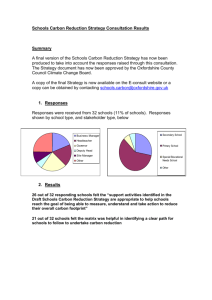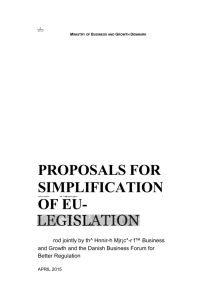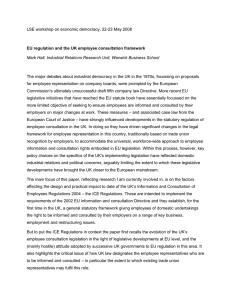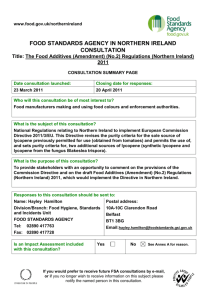Nine questions from the European Commission and three of
advertisement
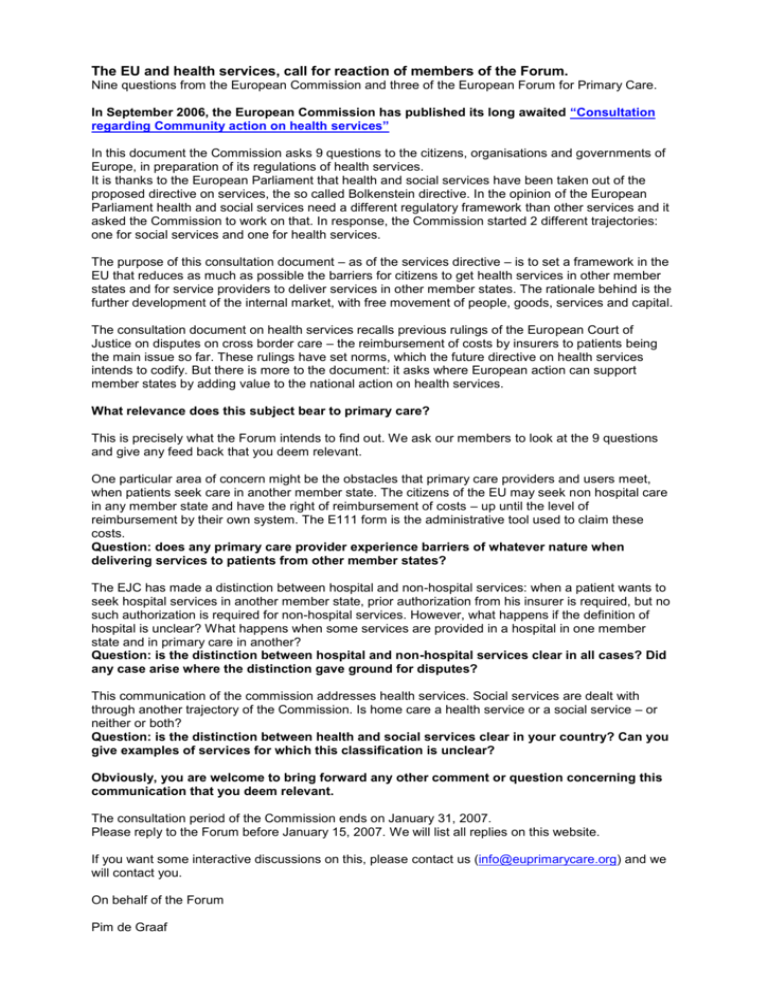
The EU and health services, call for reaction of members of the Forum. Nine questions from the European Commission and three of the European Forum for Primary Care. In September 2006, the European Commission has published its long awaited “Consultation regarding Community action on health services” In this document the Commission asks 9 questions to the citizens, organisations and governments of Europe, in preparation of its regulations of health services. It is thanks to the European Parliament that health and social services have been taken out of the proposed directive on services, the so called Bolkenstein directive. In the opinion of the European Parliament health and social services need a different regulatory framework than other services and it asked the Commission to work on that. In response, the Commission started 2 different trajectories: one for social services and one for health services. The purpose of this consultation document – as of the services directive – is to set a framework in the EU that reduces as much as possible the barriers for citizens to get health services in other member states and for service providers to deliver services in other member states. The rationale behind is the further development of the internal market, with free movement of people, goods, services and capital. The consultation document on health services recalls previous rulings of the European Court of Justice on disputes on cross border care – the reimbursement of costs by insurers to patients being the main issue so far. These rulings have set norms, which the future directive on health services intends to codify. But there is more to the document: it asks where European action can support member states by adding value to the national action on health services. What relevance does this subject bear to primary care? This is precisely what the Forum intends to find out. We ask our members to look at the 9 questions and give any feed back that you deem relevant. One particular area of concern might be the obstacles that primary care providers and users meet, when patients seek care in another member state. The citizens of the EU may seek non hospital care in any member state and have the right of reimbursement of costs – up until the level of reimbursement by their own system. The E111 form is the administrative tool used to claim these costs. Question: does any primary care provider experience barriers of whatever nature when delivering services to patients from other member states? The EJC has made a distinction between hospital and non-hospital services: when a patient wants to seek hospital services in another member state, prior authorization from his insurer is required, but no such authorization is required for non-hospital services. However, what happens if the definition of hospital is unclear? What happens when some services are provided in a hospital in one member state and in primary care in another? Question: is the distinction between hospital and non-hospital services clear in all cases? Did any case arise where the distinction gave ground for disputes? This communication of the commission addresses health services. Social services are dealt with through another trajectory of the Commission. Is home care a health service or a social service – or neither or both? Question: is the distinction between health and social services clear in your country? Can you give examples of services for which this classification is unclear? Obviously, you are welcome to bring forward any other comment or question concerning this communication that you deem relevant. The consultation period of the Commission ends on January 31, 2007. Please reply to the Forum before January 15, 2007. We will list all replies on this website. If you want some interactive discussions on this, please contact us (info@euprimarycare.org) and we will contact you. On behalf of the Forum Pim de Graaf




